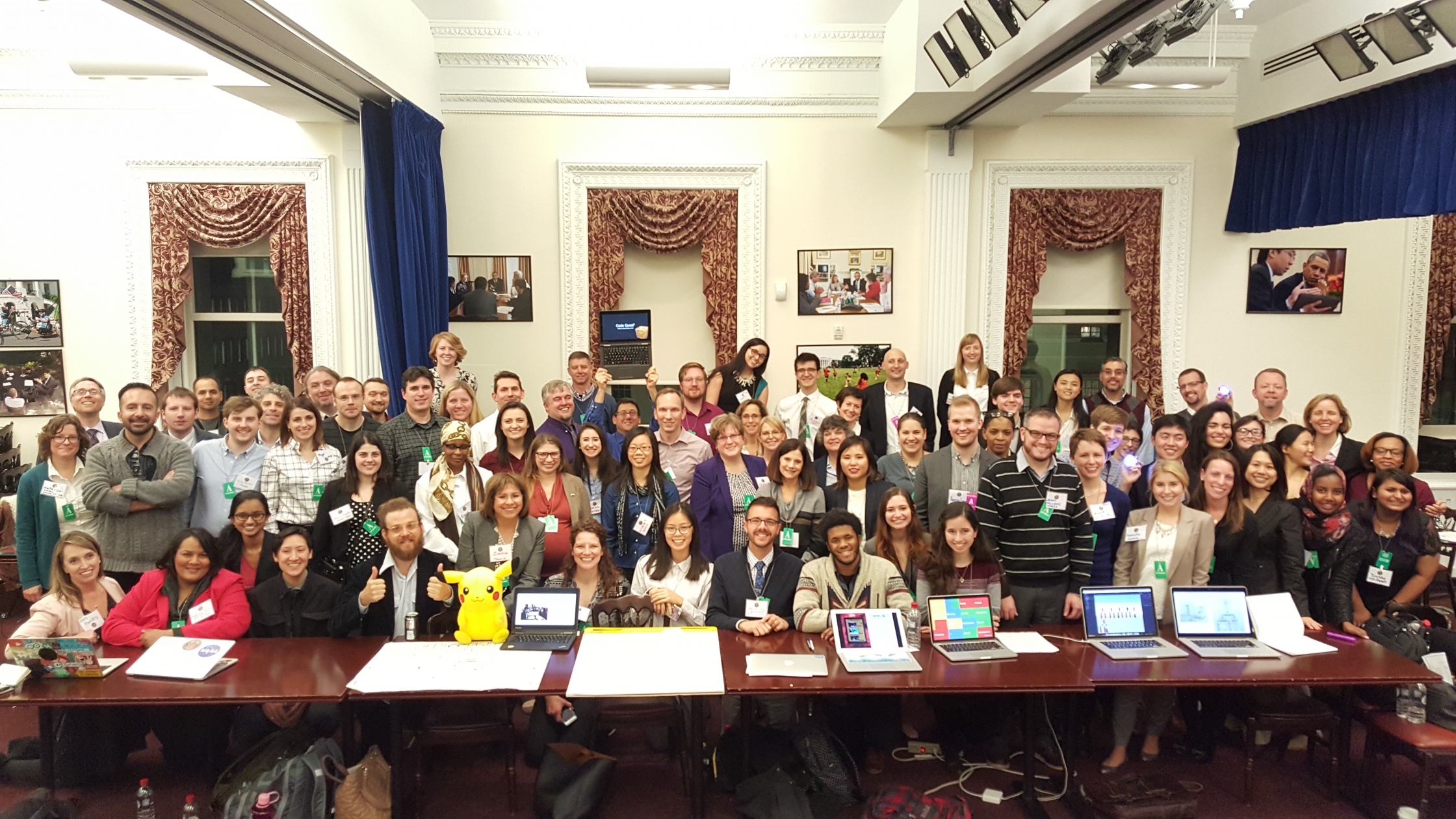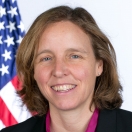
Each year we recognize Computer Science Education Week (CS Ed Week) around the December birthday of U.S. Navy Rear Admiral Grace Hopper, a pioneer of computing. Last year, President Obama became the first President to write computer code as a part of Hour of Code at the White House and the Administration announced a host of public and private commitments to expand access to computer science education in K-12 schools.

This year, to kick-off the week, the White House hosted its first ever CS Tech Jam, bringing together educators, students, and developers to generate new ways to bring fun and engaging computer science experiences, coding, and computational thinking into K-6 classrooms.

Throughout the remainder of the week, White House Officials and Federal agency leadership will be hosting and speaking at a number of community-based computer science events around the Nation:
- This past Saturday December 5, U.S. Deputy CTO Ed Felten gave a keynote address at the 100 Computer Science Teacher Summit, in Boston, an event sponsored by The College Board and NSF to convene leading educators teaching the new Computer Science Principles AP curriculum and to kick off CS Education Week. Afterward he toured the “Science Behind Pixar” exhibit at the Boston Museum of Science with teachers and students.
- The White House CS Tech Jam on Monday, December 7 involved more than 70 educators, developers, and students. Speakers included Deputy Advisor to the President for Education Roberto Rodriguez, U.S. CTO Megan Smith, Delegated Deputy Secretary of Education John King, Director for Education Technology at the Department of Education Richard Culatta, and Joan Ferrini- Mundy and Erwin Gianchandani of the National Science Foundation (NSF).
- On Monday December 7, 2015, Senior Adviser for the White House Initiative on Educational Excellence for Hispanics, Jaqueline Cortez-Wang and Jan Cuny from NSF, were Expert Participants on a national #TechEdChat.
- On Tuesday, December 8, U.S. CTO Megan Smith will address teachers, students, and administrators at Thurgood Marshall Academy in Washington, D.C. on the importance of efforts like theirs to provide a high-quality, college-preparatory curriculum that incorporates computer science and application into all grade-level course work and to kick-off an Hour of Code.
- On Tuesday, December 8 at 5 p.m. EST, the White House Initiative on Educational Excellence for African Americans will present a webinar on 'Supporting African American Men Pursuing STEM Degrees' in partnership with Drs. Frank Harris, III and J. Luke Wood Co-Directors of the Minority Male Community College Consortium at San Diego State University.
- Also on December 8, the White House Office of Public Engagement will host state and local education leaders from around the nation to learn more about barriers to, and opportunities to expand, computer science education, next generation high schools, and other key administration priorities.
- On Thursday, December 10 starting at 10 a.m. EST, students from around the world can participate in a distance learning event that will be live-streamed from Seneca Falls National Park via YouTube. The White House, in conjunction with the National Parks Service (NPS), NASA, and the Center for the Advancement of Science in Space (CASIS) team, and the International Space Station (ISS) will explore what it means to be a Junior Data Science Ranger in person and online at http://www.nps.gov/kids/features/2015/edweek.cfm. Students can interact with the virtual NPS Nature quest and a suite of free apps and programs to learn computer science fundamentals available here. Students, parents, and teachers can also track the ISS during CS Ed Week at the ISS Sighting Schedule from December 7-11, 2015.
- Also on December 10 at Navajo Technical University, Chinle Campus, Chinle, AZ, NSF Assistant Director for Education and Human Resources Joan Ferrini-Mundy will participate in a convening of stakeholders to discuss current and future computer science education goals and plans and provide remarks the next day at the commencement of the first class of Engineering Masters students.
- On Friday, December 11, U.S. CTO Megan Smith and colleagues will visit the Hopper Information Services Center, Office of Naval Intelligence, to Celebrate Grace Hopper’s birthday and her contributions to computer science as the American who invented the idea of computer languages, wrote the first compiler, and led many other computer science firsts.
- On Friday, December 11, the White House will host computer science leaders for a workshop to identify barriers and opportunities to expand access in K-12 schools.
- Additionally this week, agency leadership will engage in a meeting in Atlanta to craft a city-wide vision for computing; visit schools in Nashville to bring together computer science educators to share best practices and nurture community, and celebrate Hispanics in computing with the National Center for Women & Information Technology (NCWIT) at University of California, Los Angeles (UCLA).

These events are just a few of the many community-based celebrations that will take place during this seventh CS Ed Week.
After seven years, it’s also important to reflect on our progress as a Nation in expanding access to computer science education.
- A growing number of cities and districts, such as New York, Chicago, and San Francisco, and states, like Arkansas, have put plans in place to offer computer science courses to all students in K-12 public schools.
- The Hour of Code and new efforts like Exploring Computer Science have engaged millions and shown that computer science is fun and creative.
- A new Advanced Placement® test, Computer Science Principles, has been developed and piloted across the U.S. and will be available as an official College Board offering in Fall 2016.
- The CS10K effort, which aims to build the foundation needed to get engaging, rigorous academic computer science courses into 10,000 schools taught by 10,000 well-prepared teachers, is well on its way to reaching its goal.
- There are now 35 TechHire cities, states, and rural areas with more than 500 employer partners that are working together to create new pathways to better, high-paying technology jobs for those who need them most, while meeting urgent employer demand across the United States.
- And, with the recognition that computer science offers tremendous career opportunities and enriches other technical as well as non-technical fields, undergraduate enrollments in computer science and computer engineering have reached record highs.
While much progress has been made, there still is a need to better engage all of our learners. As Domestic Policy Director, Cecelia Muñoz, and U.S. CTO, Megan Smith noted in a previous post, in 2015, girls represented only 22 percent and underrepresented minorities only 13 percent of the approximately 50,000 students who took the Advanced Placement Computer Science A (AP-CS A) exam nationally.
We, as a nation, can and must do better!
Increasing interest and engagement of all students in CS education requires community efforts, with teachers, administrators, nonprofit organizations, corporations, researchers, parents, and the public playing critical roles.
So, as you celebrate CS Ed Week, submit your ideas about new commitments and remarkable CS champions!
- Tell us about new commitments you are ready to make (by December 22 for first round consideration and by January 5, 2016 for second round). Early next year, we plan to announce a broad set of new commitments to CS education. You and your organization can get involved by making a commitment to expand access for more students to computer science education by investing in teachers, improving tools, and bringing programs to students in diverse communities across the United States.
- Do you know a remarkable computer science educator, student, or enthusiast? Please tell us more by nominating that individual to be recognized as a Computer Science Education Champion of Change (by December 18, 2015).
And, if you want to use Computer Science Education Week to bring computer science to your community, here are several ideas.
It is an exciting and impactful time for computer science education! We hope you’ll join us this week and beyond by getting hands-on with fun and engaging computing activities and bringing computer science and computational thinking to students in your community!
Megan Smith is the U.S. Chief Technology Officer in the Office of Science Technology and Policy at the White House
Jim Kurose is Assistant Director of the National Science Foundation (NSF) for Computer and Information Science and Engineering
Joan Ferrini-Mundy is Assistant Director of the National Science Foundation (NSF) for Education and Human Resources
Russell Shilling is the Executive Director of STEM at the U.S. Department of Education


